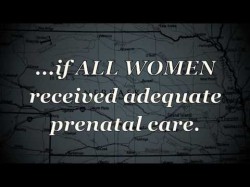Single teen parenting is one of the toughest obstacles any teen may face in their young lives. Parenting is a tough job for even older adults who are more stable financially and have a higher education. However, there are tips for single teen parenting that can help with the road to successful parenting and life.
Single teen parenting is a road that is tough for any young teen mom or dad to have to face while their biggest worries should be about passing their classes and getting into college. However, things happen and once you become pregnant as a teen and decide to keep the baby, the most important thing to consider is how to become a good parent. Learning and practicing good parenting skills before you have the baby are helpful to prepare you for what to expect as you become a parent. There are a few different areas to consider when taking the steps to prepare for being a single parent.
Finances:
Financial struggles are some of the toughest parts of being a single parent for any age parent. However, single parents in their teen years are likely already unemployed because they are still in school. If a teen does have a job, it is likely that they are making minimum wage and will not be able to continue to afford working there after they have the baby. Teen pregnancy statistics indicate about 70 percent of high school teens that get pregnant do not graduate from high school. Because of this startling statistic, that means it can be even more difficult for a teen mom to get a higher paying job to support herself and her baby or child as they continue to grow and need more financially. Fortunately there are monetary assistance programs that can help single teen parents. Some of these resources include, government assistance programs like Medicare and Medicaid, Women Infant Children (WIC) and other assistance programs to help single teen parents get jobs and finish school.
Aside from government financial assistance programs, there are other ways or receiving financial support including from child support. Even if you are not with the other parent anymore, if they are still physically capable of paying child support, there is no reason they shouldn’t be doing so. If they are refusing to pay child support, contact the court or an attorney to get legal advice on how to pursue the situation legally. Support from your parents might or might not be a viable option when it comes to single teen parenting. Some parents can afford to help their child out financial, while some cannot. Be sure to talk to your parents about being a possible resource. At the very least, hopefully your parents can be there as an emotional support system.
Knowing what you’ll need:
If you are still in the pregnancy stage of your single teen parenting struggles, you will need to begin preparing for the baby by accruing items they will need including, a crib, clothing, bottles, diapers, food, toys and so much more.
Single teen parenting resources:
- Your parents or other trusted family and friends
- Parenting classes
- Online assistance
- Other single moms
When you are encountering troubles with single teen parenting, you might find that you feel incredibly alone. However, that is not the case and you simply need to know where to look to find others you can relate to emotionally, and know where to go to educational assistance toward single teen parenting information. Rely on your parents, family and friends to help you through the emotional times as a single teen mom. Remember, most of them have probably been through pregnancy and parenting before and probably have dozens of tips on how to parent and raise your child. There are also parenting classes available specifically teen moms and dads who are single or otherwise to help them learn the basics of parenting including changing a babies diaper, dressing, bathing and feeding them. There are so many resources to be had online as well. Dozens of baby support forums as well as blogs and message boards that are dedicated simply to being a single teen parent. Rely on those to help you connect with others in your same situation. Meeting other single moms is also a helpful way to develop a support system. You can rely on one another for emotional support as well as to just have someone else you know who is going through the same day-to-day struggles that you may be facing.
Sources: parenting.com,babycenter.com





